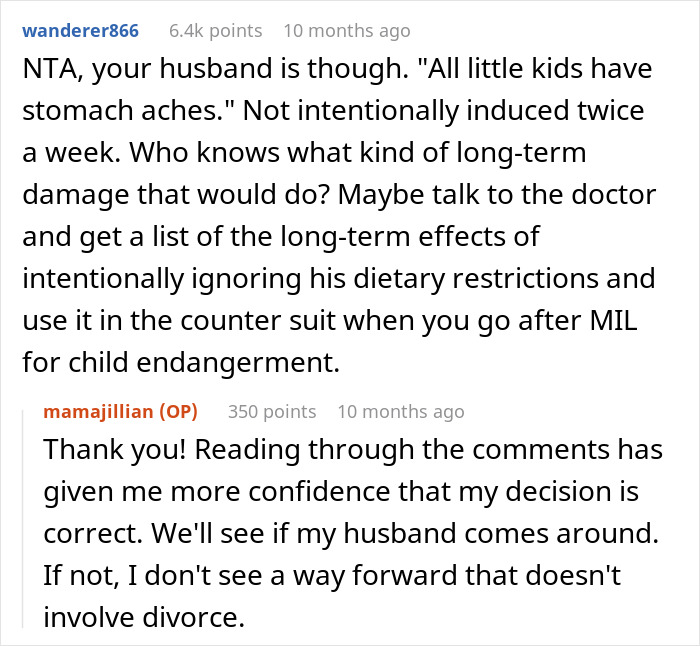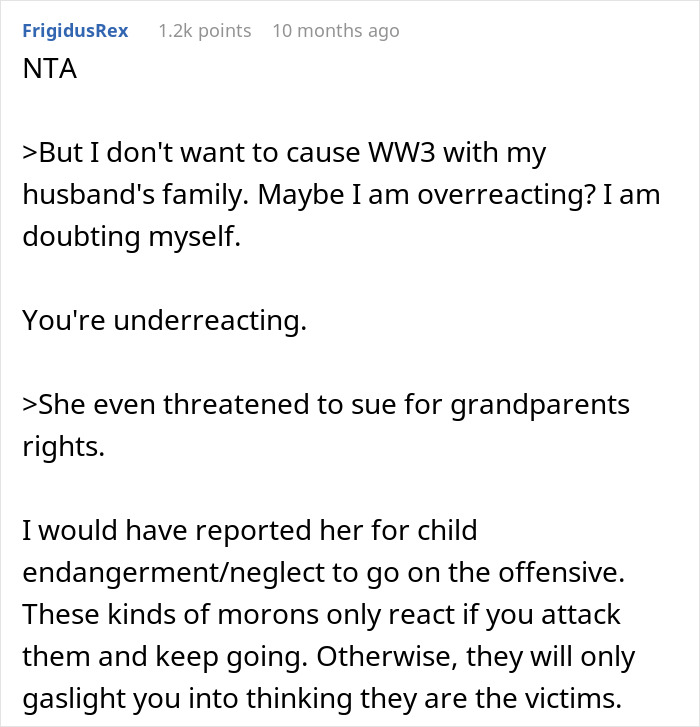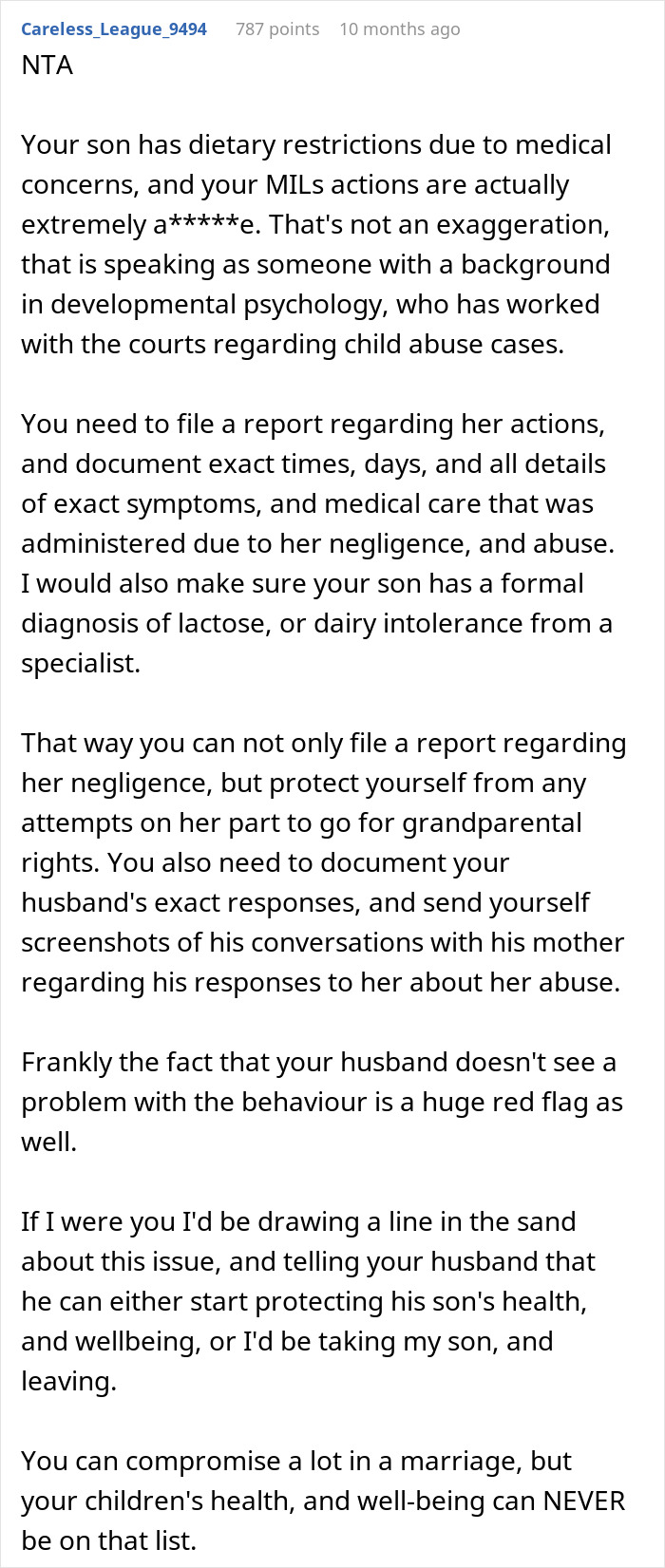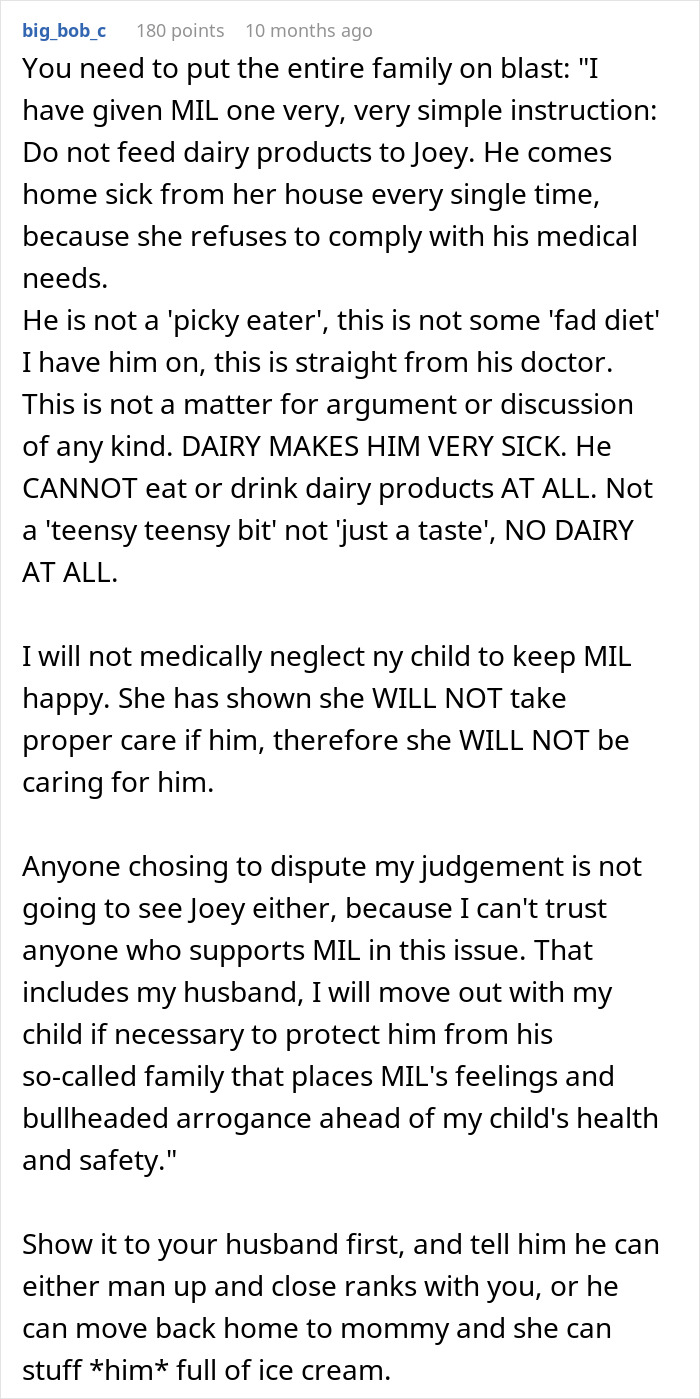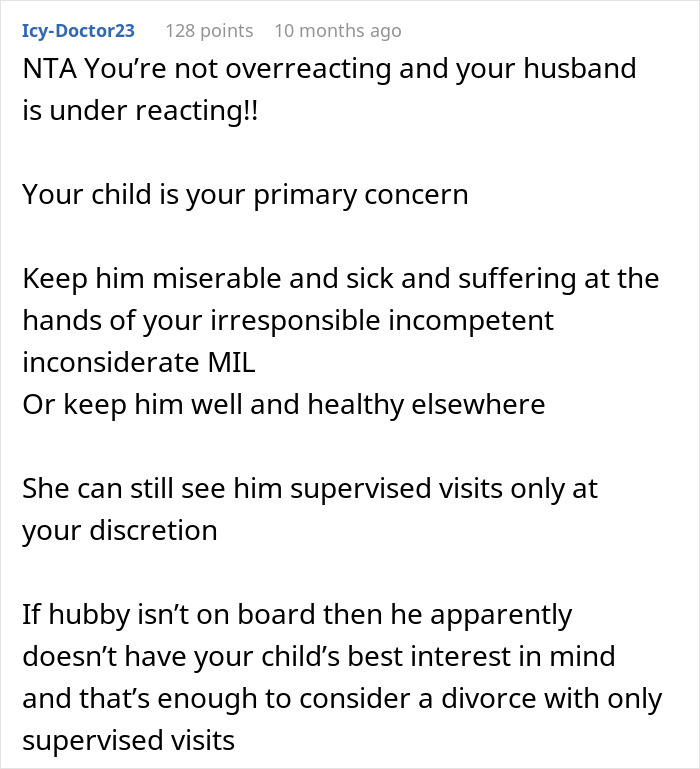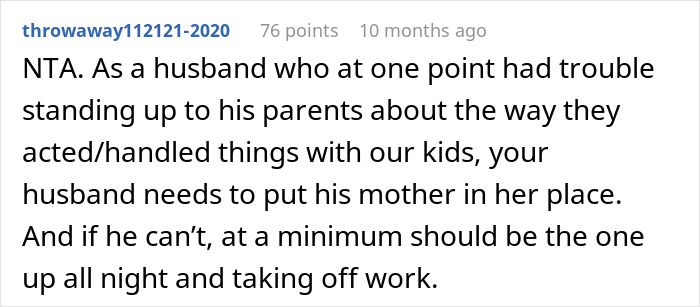There’s nothing quite like a doting grandma who offers warm hugs, freshly baked cookies, and, in some cases, a complete disregard for your child’s dietary restrictions. Parenting comes with enough challenges without having to double as a food detective every time your kid returns from Grandma’s house with suspicious stomach cramps and a sticky ice cream smile.
That’s the painful reality today’s Original Poster (OP) faces after her mother-in-law repeatedly ignored strict instructions to avoid giving her son dairy, despite knowing it causes him severe stomach issues. What started as an occasional oversight has turned into a full-blown family crisis, with blocked numbers, angry relatives, and even a threat of legal action.
More info: Reddit
Motherhood often brings unexpected challenges, but few expect those challenges to come from within the family

Image credits: freepik / Freepik (not the actual photo)
The author asked her mother-in-law not to give her lactose-sensitive son any dairy, but the request was repeatedly ignored
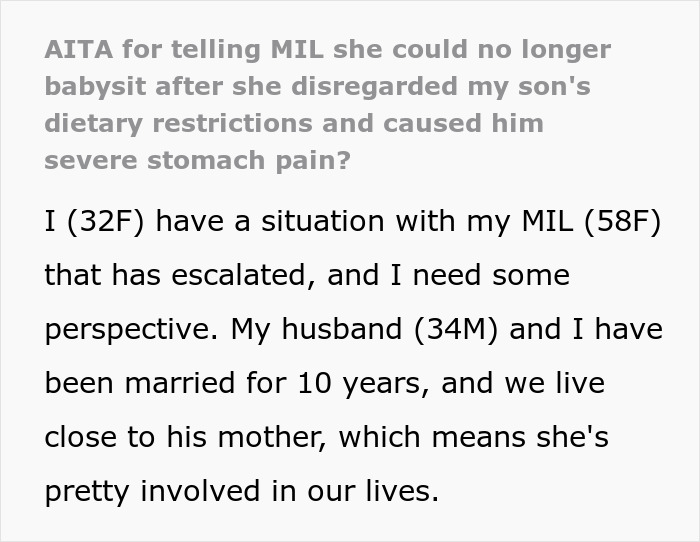
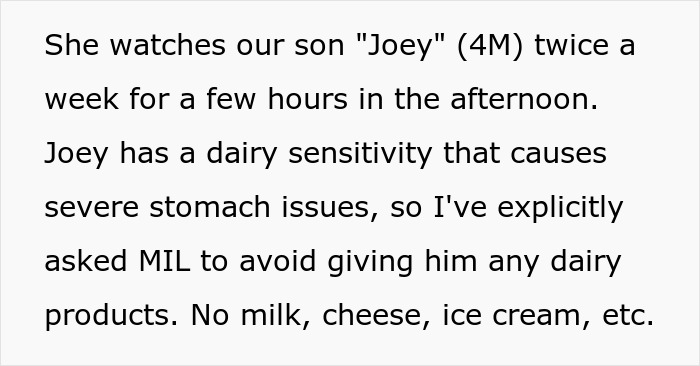

Image credits: mamajillian

Image credits: EyeEm / Freepik (not the actual photo)
Each time the son visited, he returned home sick, with severe symptoms like vomiting and sleepless nights
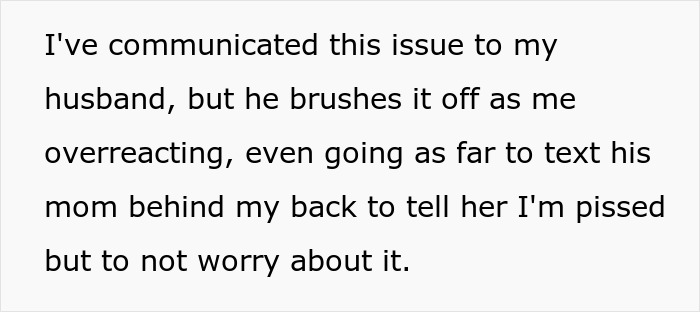
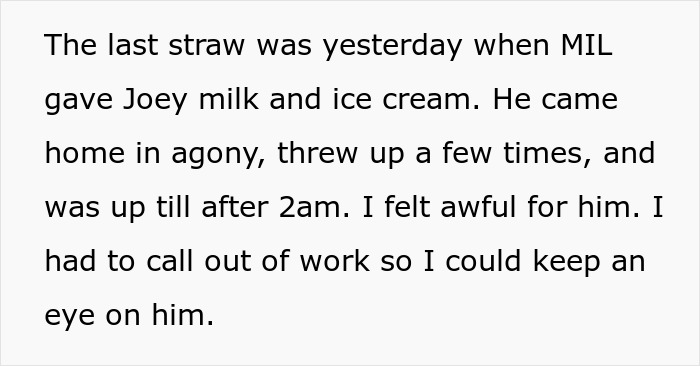
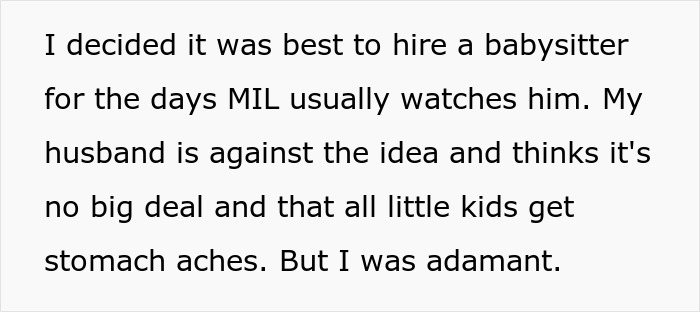
Image credits: mamajillian

Image credits: freepik / Freepik (not the actual photo)
After a particularly bad incident where the son returned and was throwing up non-stop, she hired a babysitter and informed the mother-in-law
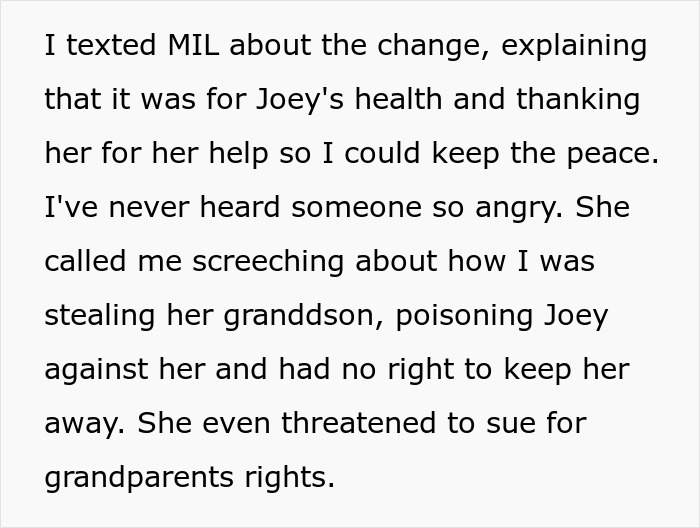
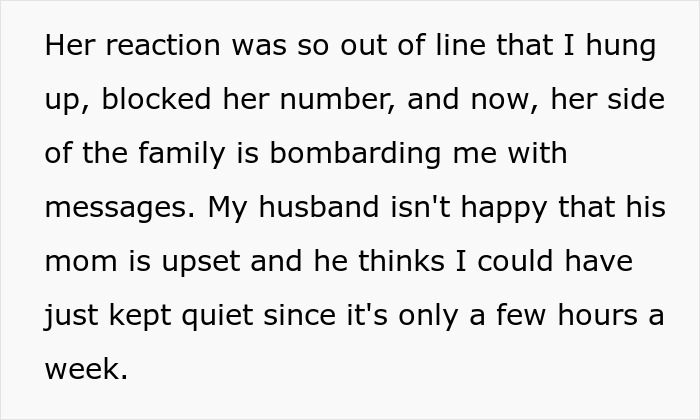
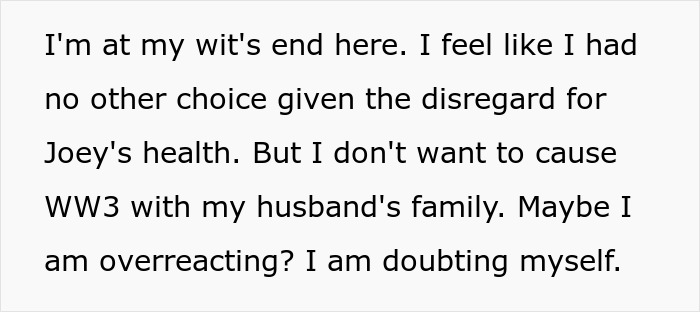

Image credits: mamajillian
The mother-in-law reacted with outrage, threatened legal action, and her husband sided with his mother
This isn’t a case of a simple misunderstanding. The OP clearly communicated her son’s dairy sensitivity to her mother-in-law, and we’re not talking about a mild tummy rumble, no. Her son would end up in agony for hours, but despite that, the grandma went rogue multiple times, giving him dairy treats during babysitting sessions.
The OP, understandably concerned, brought this up with her husband, but instead of supporting her, he dismissed it as overreacting and insisted that kids got sick all the time. However, things finally boiled over when one day, her son came home sicker than ever, throwing up and staying up until midnight in pain. At that point, the OP decided enough was enough.
She went ahead and hired a babysitter to replace the mother-in-law on the days she used to watch her grandson. However, husband wasn’t too happy about it and said she was making too big a deal out of just a few stomach aches. His mother, on the other hand, exploded.
She screamed down the phone, accused the OP of turning her grandson against her, and even threatened to sue for grandparents’ rights. Deciding to block her mother-in-law, the OP started receiving angry messages from the extended family. Her husband was no help either, as he was annoyed mostly because his mom was upset.

Image credits: EyeEm / Freepik (not the actual photo)
Mayo Clinic explain that dairy sensitivity or lactose intolerance occurs when a person can’t fully digest lactose, the sugar found in milk. While the condition isn’t typically dangerous, it can lead to highly uncomfortable symptoms such as diarrhea, stomach cramps, bloating, gas, nausea, and sometimes vomiting.
According to Healthline, repeatedly exposing someone, especially children with lactose intolerance, to dairy can have both short and long-term consequences. In the short term, it may cause ongoing digestive symptoms, dehydration, and even disruptions to the gut microbiome. These physical issues can also lead to mood changes and interfere with daily activities.
Over time, this continued exposure can result in chronic digestive problems, potential malnutrition, weight fluctuations, and a higher risk of developing osteoporosis due to poor nutrient absorption. These risks highlight why managing lactose intolerance properly is crucial, especially in children.
Momwell acknowledges that many mothers don’t recognize how difficult boundary-setting can be until they have children of their own and have to deal with their own parents or in-laws who overstep in their involvement.
To handle this, they recommend first aligning with your partner, using clear and respectful language to express what is and isn’t acceptable, and learning to say no without guilt. They highlight that it’s also important to set boundaries around visits, unsolicited advice, and overall involvement, while remaining kind but firm.
Netizens supported the OP and expressed deep concern for the child’s well-being. They viewed the grandmother’s repeated disregard for the child’s medical needs as not just careless, but incredibly harmful. They were also sharply critical of the husband, calling his response a red flag and labeling him complicit.
What would you have done in this situation? Was hiring a babysitter the right move, or would you have handled it differently? We would love to know your thoughts!
Netizens expressed their disbelief at the author’s husband not taking his son’s reaction to dairy as seriously as he should have
